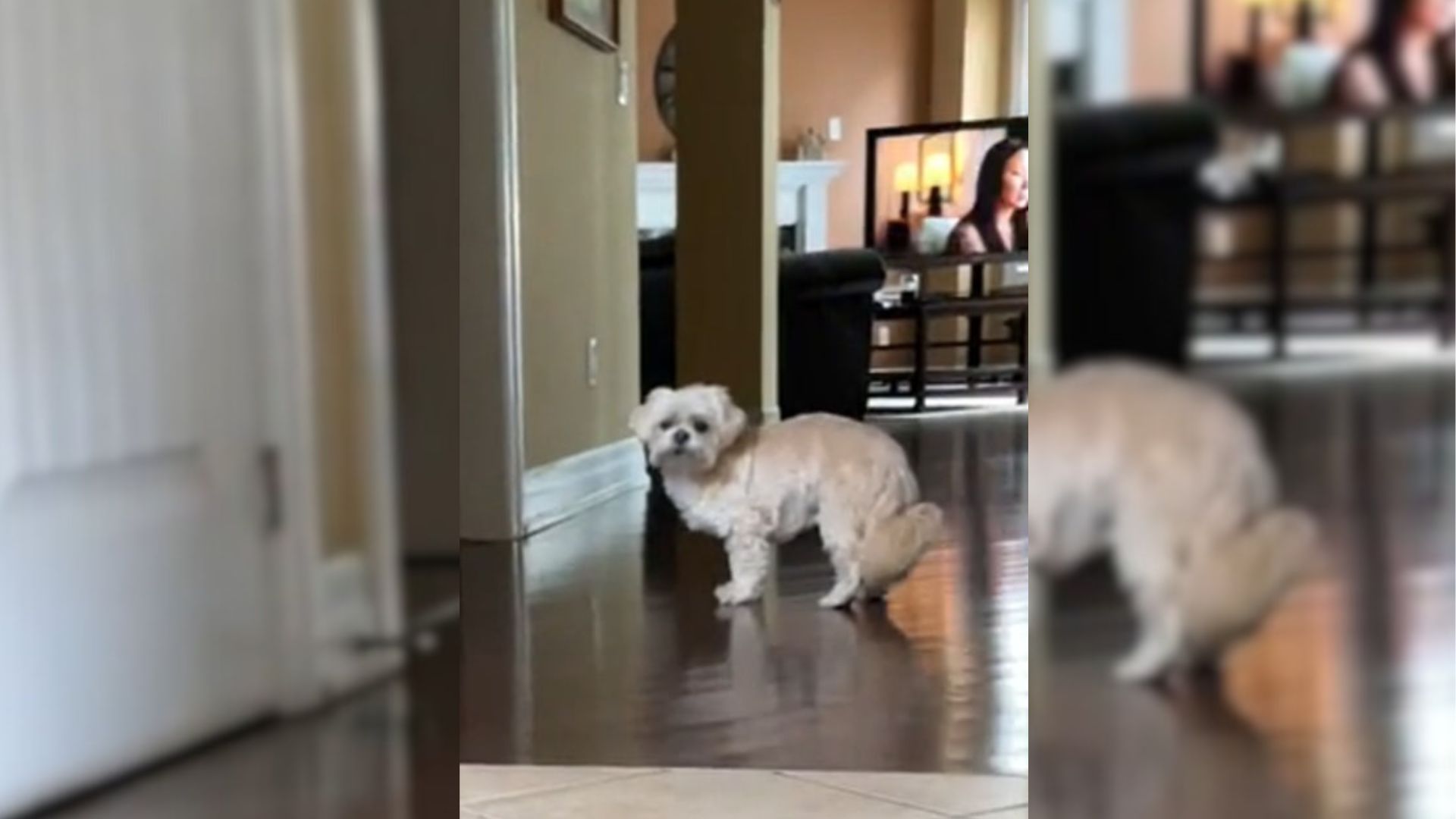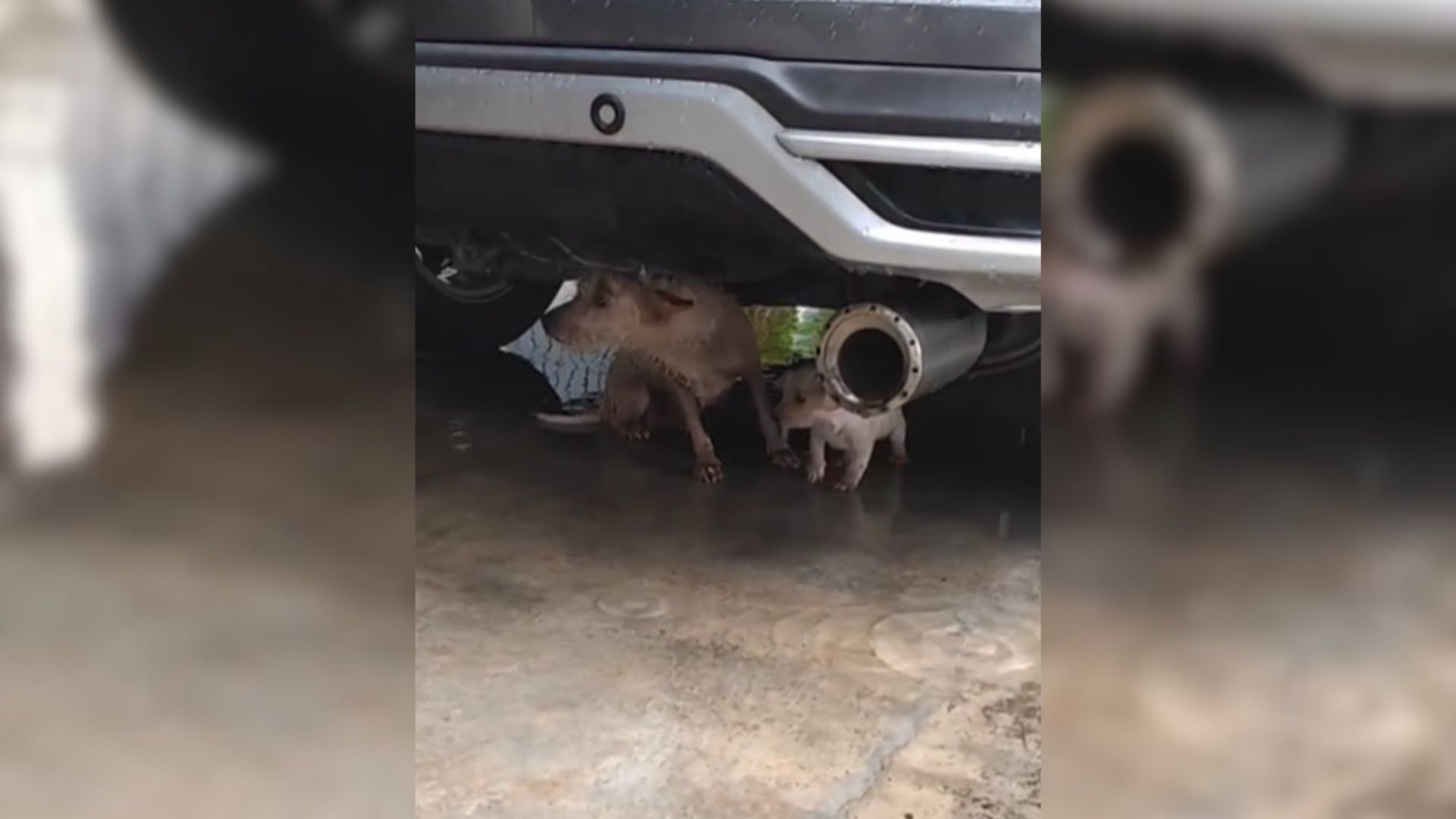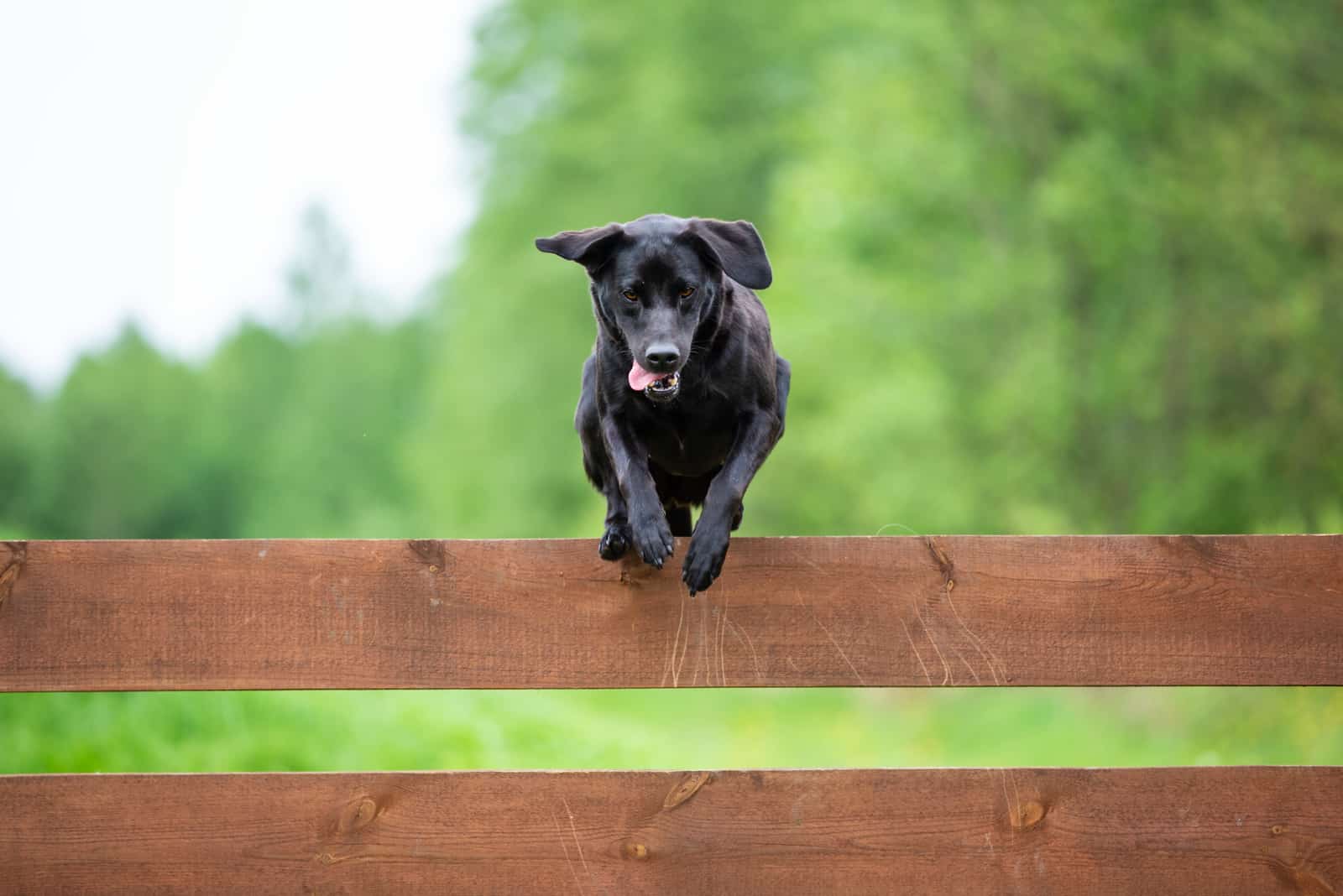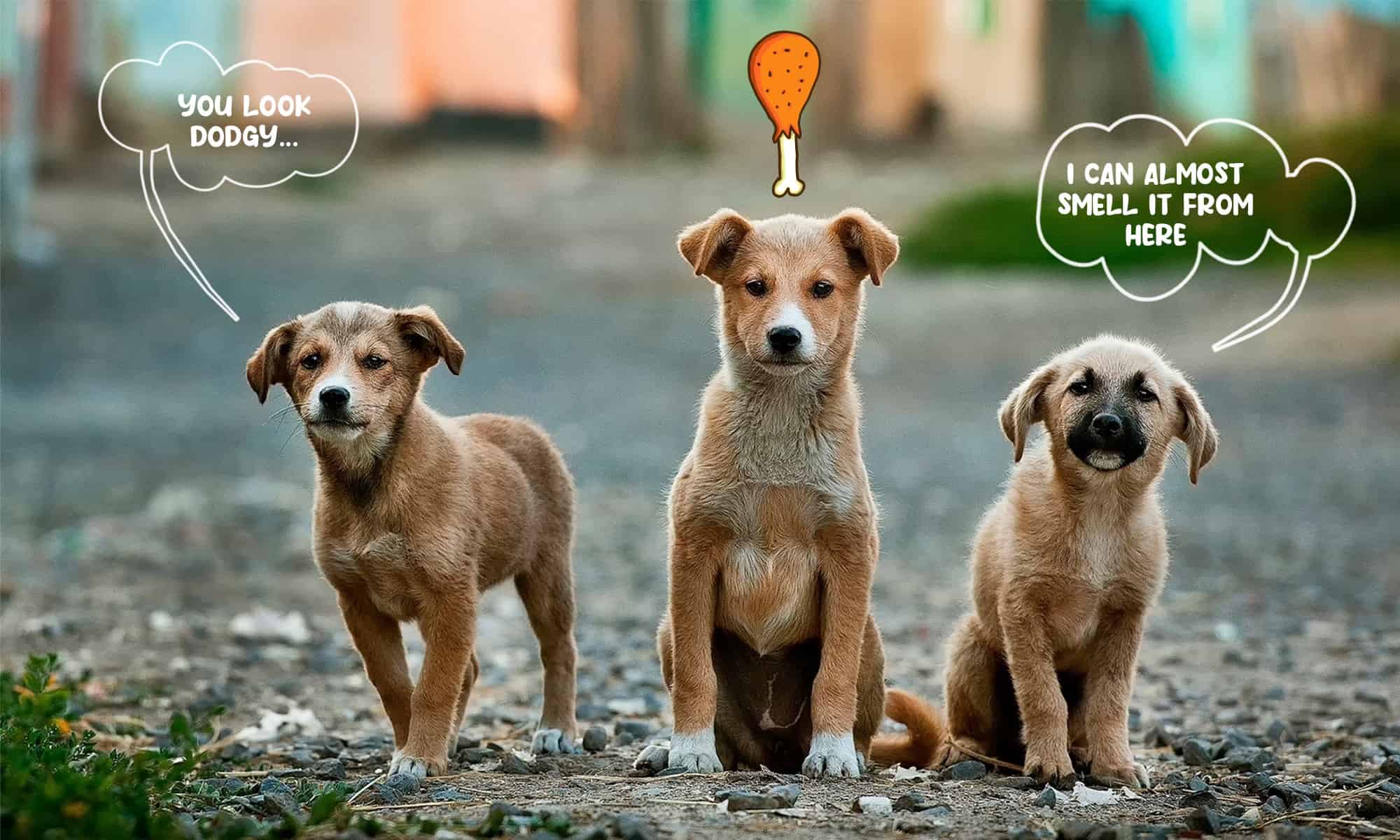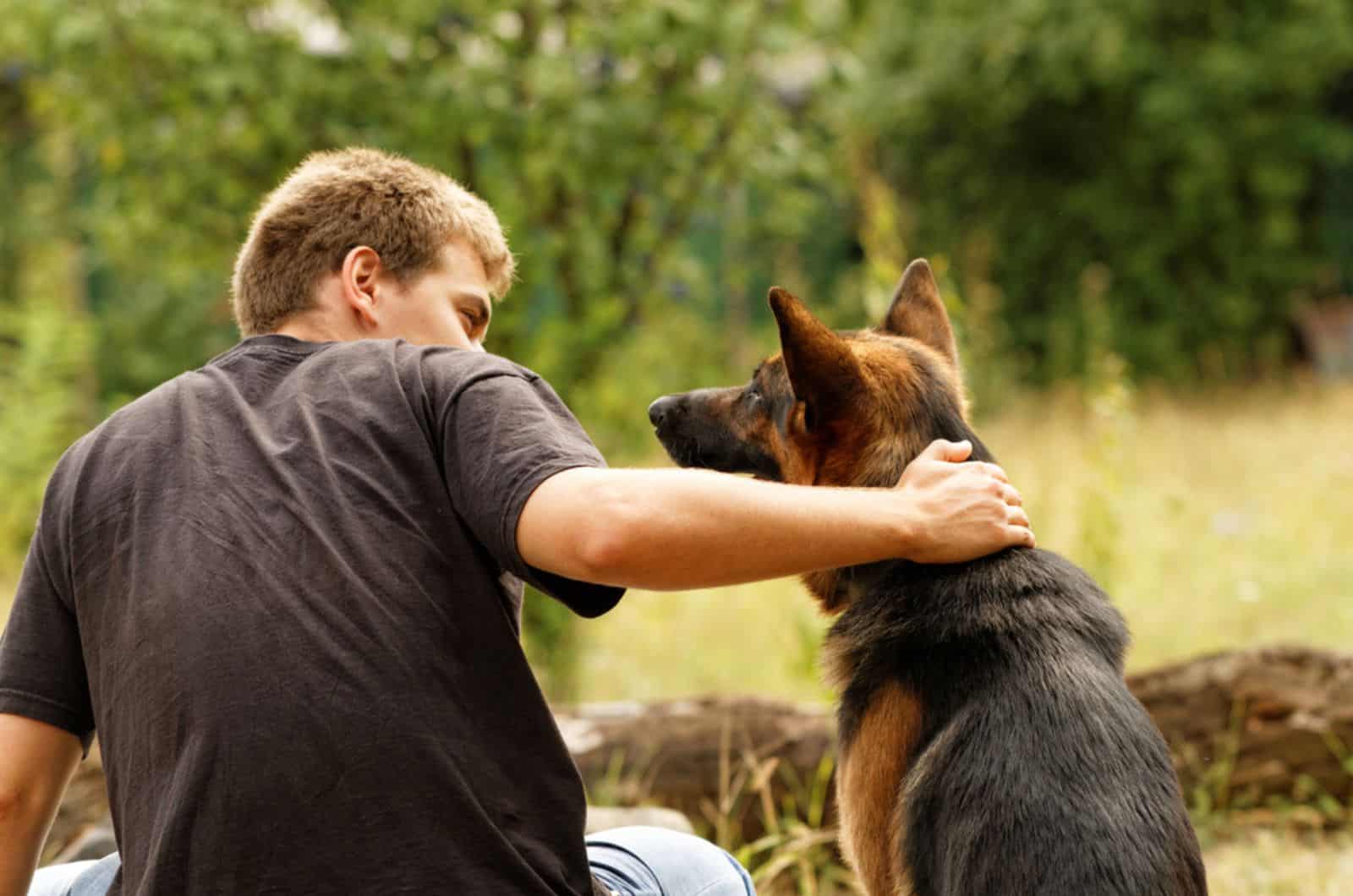Have you ever wondered why your German Shepherds bite each other’s necks? Well, you probably have, since you’re here!
But, did you know that this canine behavior is quite often and, although it may seem scary, is pretty harmless? From playfulness to protection, mating to showing off their moves, there’s more to these neck bites than meets the eye.
Let’s delve into the captivating world of German Shepherds and their neck-biting antics!
#1 Communication And Dominance
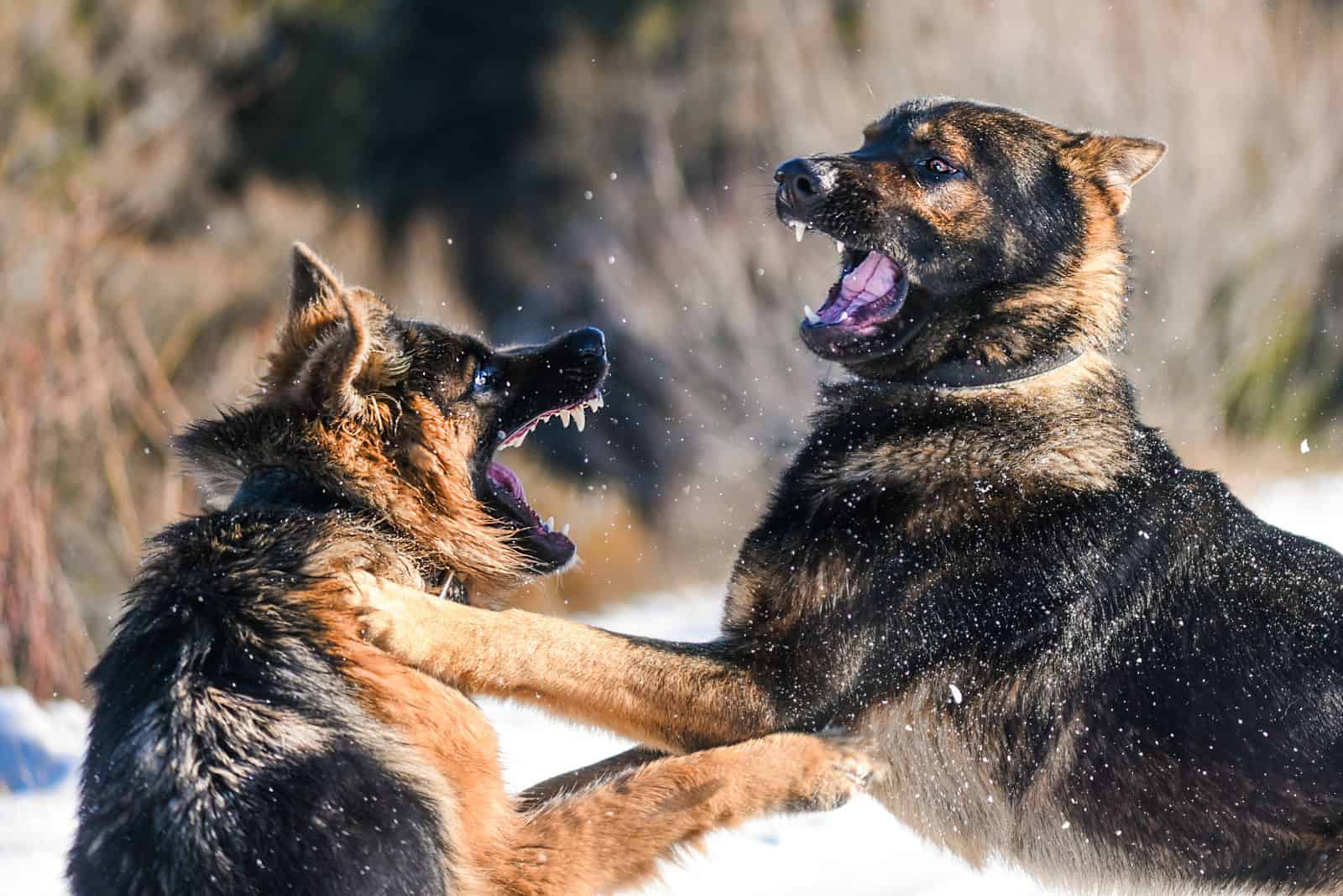
Our lovely German Shepherds communicate in all sorts of ways, don’t you agree? But, what kind of communication is neck biting? Well, it goes without saying that neck biting in dogs is just another way to express their feelings (1).
Perhaps your GSD fancies your neighbor’s dog and wants to nibble on her neck? Or maybe he’s up to no good with the neighbor’s male dog, so he wants to show him who the boss is.
Whatever the reason behind it, German Shepherds biting each other’s neck is not a pleasant sight to behold to some owners. It might be interpreted as aggressive behavior, but don’t worry.
Most of the time it is about the two communicating their way through everyday life struggles!
However, if you notice your GSD pinning down another dog while growling or shaking their head, then it might be time to intervene and separate the two.
#2 Scratch That Itch
Sometimes your itchy German Shepherd just needs a good ol’ scratch! And, what better way to scratch that itch than to tell another GSD colleague to bite his neck!
By biting or scratching at each other’s necks, German Shepherds can reach areas that are difficult to access with their paws alone.
It is important to note that this behavior should not be confused with aggressive biting, as it is usually harmless and self-soothing in nature.
#3 Play And Socialization
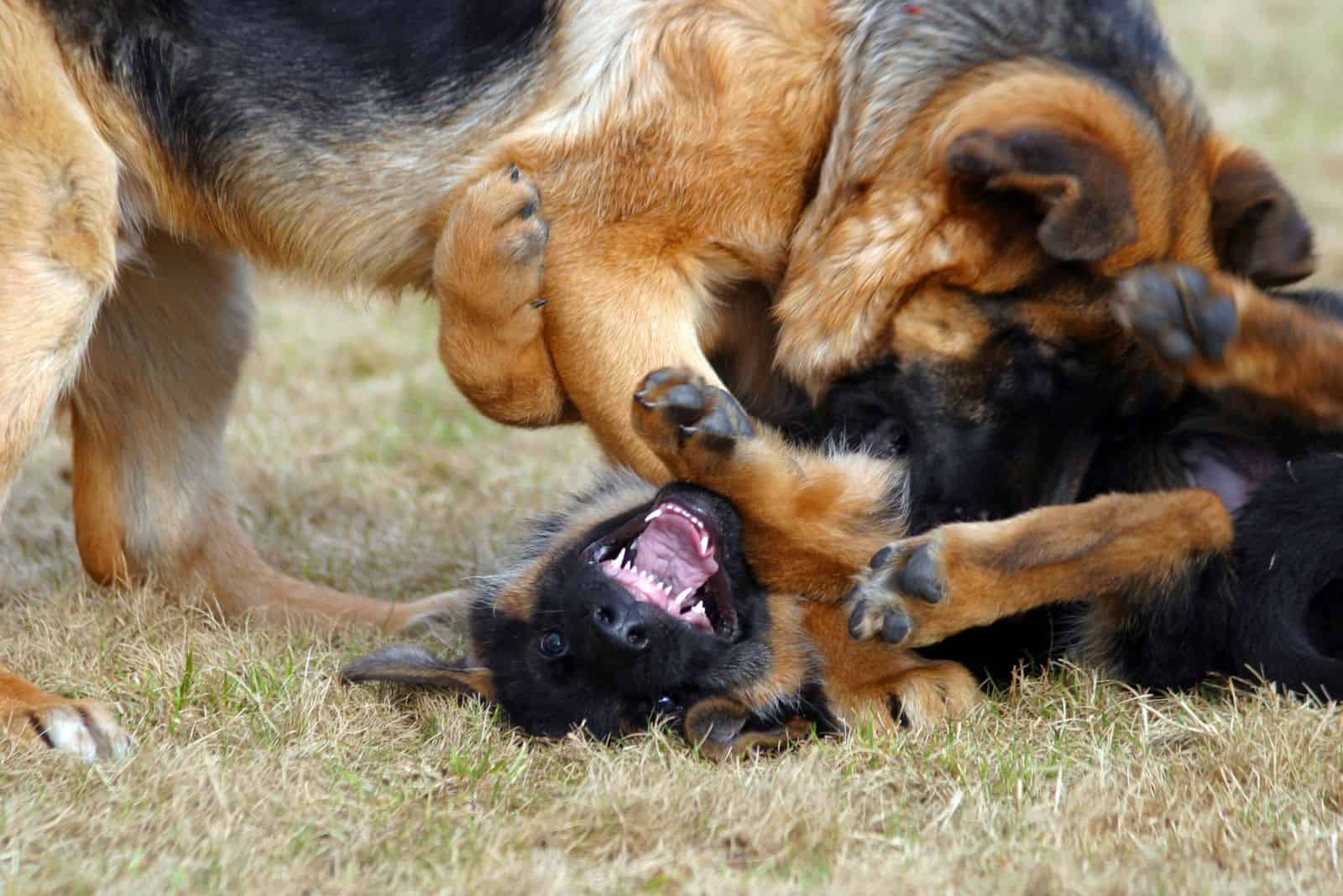
Every German Shepherd owner knows that play and socialization are essential aspects of their dog’s life.
That said, neck biting can be often observed during play sessions between two GSDs or between a pup and his hooman!
It is a way for them to engage in interactive play, establish dominance, and build social bonds.
Renowned dog behaviorist, Caesar Milan, once shared his insight on this matter, saying, “Bites back of the neck. – If they’re part of her pack, it’s okay, but I would discourage this behavior if they’re not dogs she recognizes as regular friends and family.”
So, allowing them to play fight is generally acceptable if they are familiar with each other and part of the same pack.
However, if the play involves dogs that your German Shepherd doesn’t recognize as regular friends or family, it’s advisable to discourage this behavior.
#4 Ultimate Doggie Massage
In moments of anxiousness or discomfort, German Shepherds may unleash their inner masseuse by gently nibbling on each other’s necks!
Just like us humans rubbing or scratching an itch, these clever canines have found their own unique way to find that sweet spot of relaxation.
It’s a sight that will surely make you chuckle at the goofiness of our furry friends.
The next time you catch your German Shepherd indulging in a neck-biting session, think about it — they’re not just scratching an itch, they’re indulging in their very own doggie spa experience!
#5 Protection And Defense
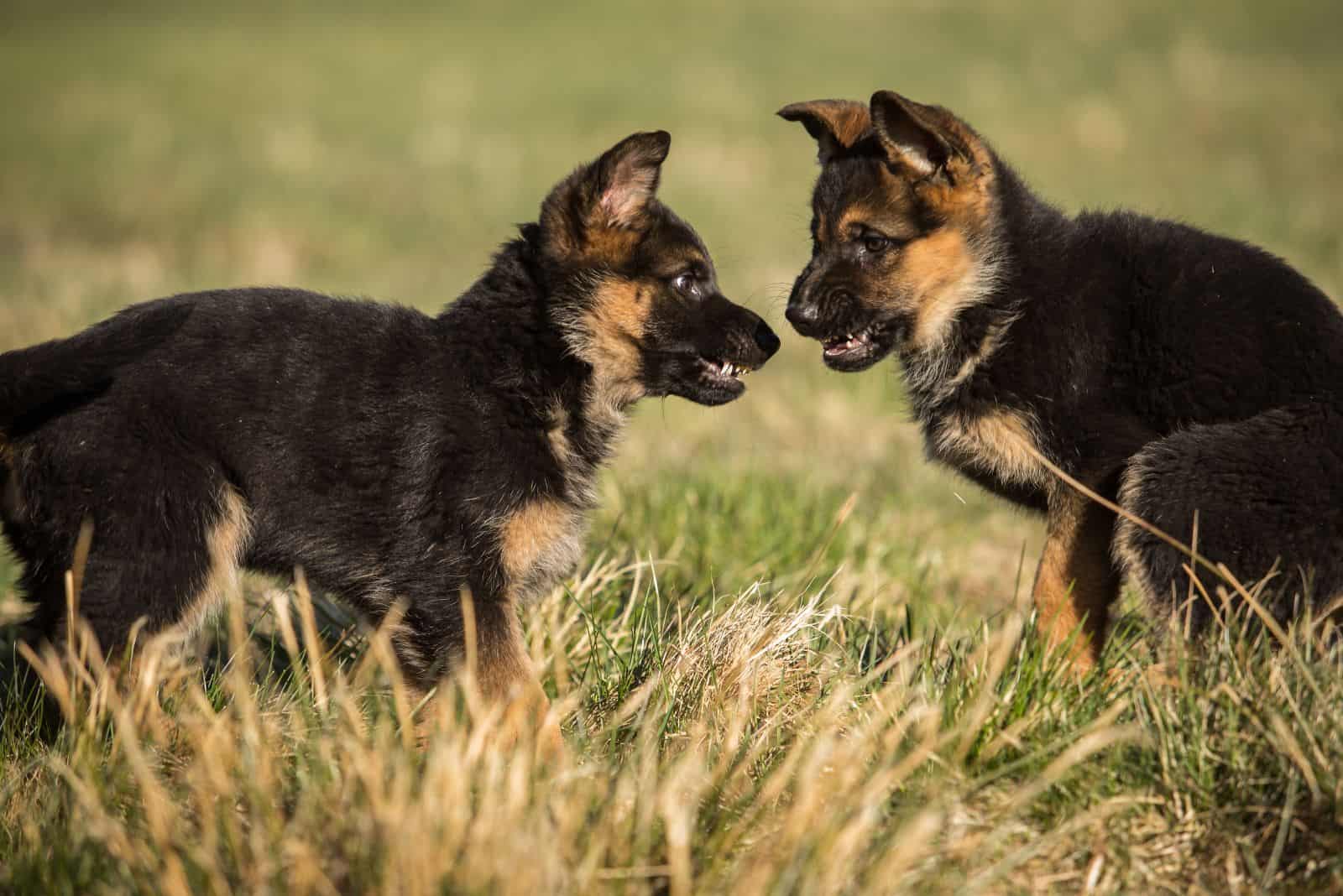
It is known that German Shepherds have a natural instinct for protection and defense.
In certain situations, neck biting can be a part of their defensive behavior. If they perceive a threat or feel the need to protect themselves or their loved ones, they may resort to biting at the neck of the perceived threat.
This behavior is an expression of their innate protective instincts and their ability to defend themselves and their pack.
Picture it: a German Shepherd, standing tall and proud, ready to defend his loved ones.
With a fearless leap, he sinks his teeth into the neck of the perceived threat, showcasing his unwavering bravery and his unwavering love for the pack.
It is extremely important to discourage this behavior as it is considered as aggressive.
#6 Mating and Reproduction
When it comes to matters of the heart, these majestic creatures have their own unique set of customs and courting rituals.
During the mating and reproduction process, neck biting takes center stage as a vital player in the dance of love. It’s like a scene straight out of a canine romance novel – a dashing male German Shepherd, smitten by a lovely female counterpart.
As part of their courtship routine, the male might engage in a gentle neck bite, aiming to establish his dominance as a weird way to seduce the lady dog.
This behavior isn’t just about dominance — it’s also a way for the male to communicate his intentions and show his readiness for love.
During their heat cycle, female GSDs produce irresistible scents that beckon potential suitors from far and wide. It’s a doggy magnetism that can’t be ignored!
So, when a male German Shepherd approaches, ready for love, the gentle neck biting can be seen as a dance of mutual understanding and acceptance.
#7 Showing Off Wrestling Moves
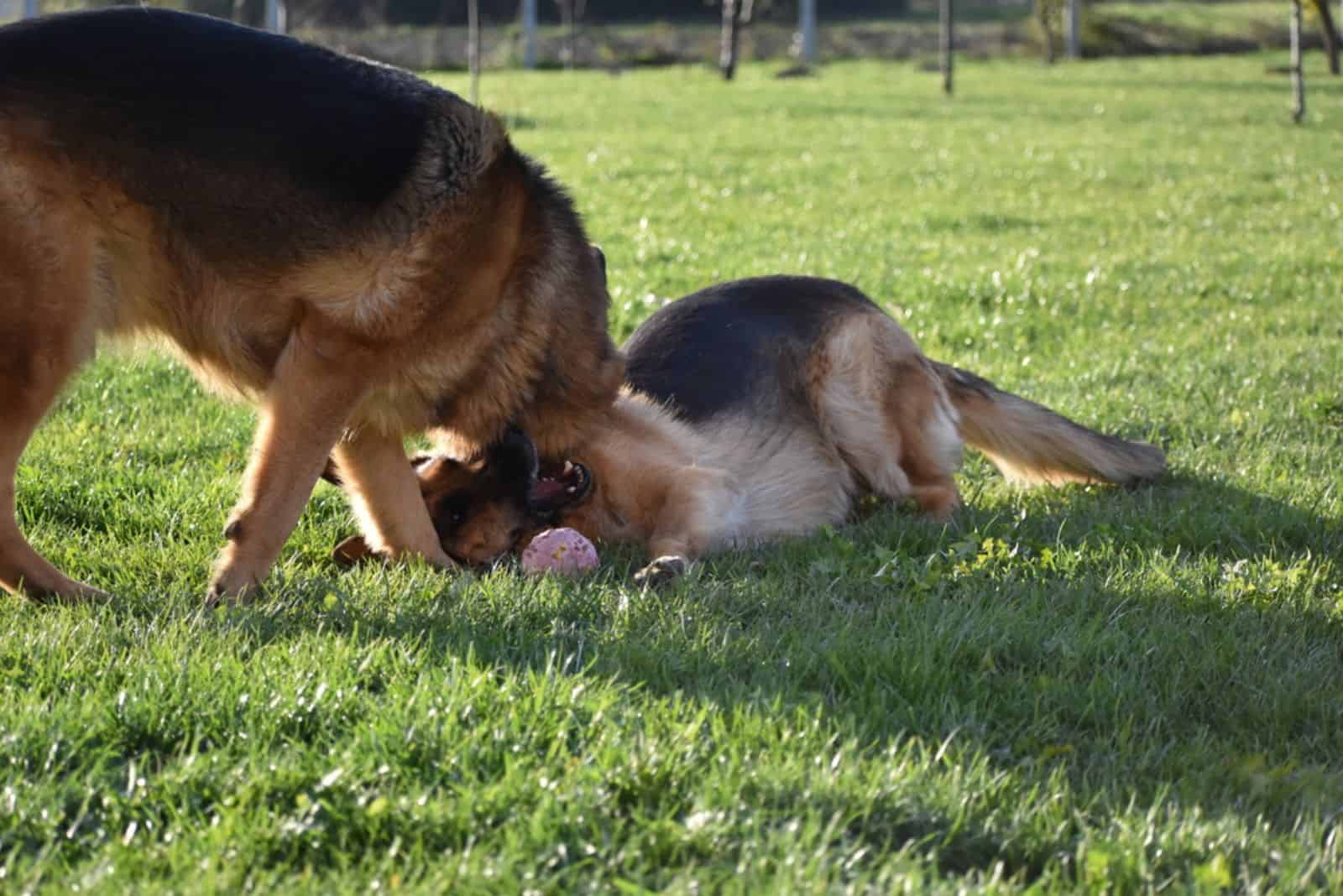
These athletic and brainy canines are ready to show off their impressive moves and unleash their inner wrestling champions.
When German Shepherds engage in playful wrestling, it’s a show that’s not to be missed. They twist, they turn, and they pounce with the agility of a ninja. And what’s a canine wrestling match without a little neck biting action?
During these playful bouts, GSDs are on a mission to demonstrate their physical prowess and showcase their dominance.
It’s like they’ve stepped into the ring with their furry belts held high, ready to claim victory with every playful nip and takedown!
But remember, safety is key! While these wrestling matches may seem fierce, it’s important to ensure that the play remains safe and enjoyable for all.
Final Thoughts
The act of German Shepherds biting each other’s necks is a multifaceted behavior that serves various purposes.
Whether it’s scratching an itch, engaging in playful wrestling, demonstrating their protective instincts, or participating in the mating and reproduction process, neck biting is a window into the world of these magnificent dogs.
As we’ve explored, it’s crucial to understand the context and intent behind their actions and ensure that their play remains safe and enjoyable.
So, stay safe and bite away!
References:
- d’Ingeo, S., Iarussi, F., De Monte, V., Siniscalchi, M., Minunno, M., & Quaranta, A. (2021, October 8). Emotions and dog bites: Could predatory attacks be triggered by emotional states?. Animals: an open access journal from MDPI.


